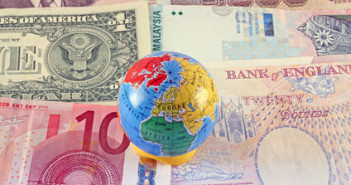Brazil’s finance minister Guido Mantega coined the term “currency wars”, referring to the situation where various countries make efforts to weaken their currency, thus supporting local exports but also shifting the pain to others, a “beggar thy neighbor” policy.
When currency devaluation goes too far, it can have a negative impact on the other side of the trade equation: imports. Iran is sensing its currency devaluation in currency riots. Can this scenario repeat itself in case of a Greek exit? Or is the Iranian situation unique?
Clashes have broken out between policemen and currency traders in Tehran, after the police raided the markets. Protests were seen in front of the central bank in the Iranian capital and demonstrations were held also in Iran’s second largest city, Mashhad.
According to some reports, the Iranian rial tumbled quickly and reached a rate of 37,500 rials per one US dollar. This is compared to 24,000 just one week ago. The deterioration in the economic situation is a result of tighter sanctions imposed by the US, Europe and others. One of the recent and most important steps was an oil embargo by the EU, that began in July. The sanctions are due to Iran’s nuclear program, that is suspected to be targeted for a nuclear bomb.
Another reason is an unsuccessful economic policy that fueled inflation. The fall in the value of the rial could also be result of government policy intended to weaken the currency in order to raise the income from oil sales. On the other hand, there were reports that Iran and India bypassed the dollar and made an oil for gold barter deal.
In any case, the end result is ever rising prices of basic food products such as chicken and lamb from a growing portion of the population. Back in August, Iran’s national police chief Esmail Ahmadi-Moqaddam called state television not to broadcast films where people eating chicken are seen.
So, another drop in the rial weighs on prices of imported good even more.
In the Grexit scenarios, an immediate drop of 50-70% in the new currency’s value is predicted. Also here, Greek exports and tourism would benefit, while imports would become very expensive. However, the cases seem quite different: Iran is an isolated non-democratic country while Greece is a democracy, a member of NATO and a member of the EU.
So, it is hard to see things getting out of control that quickly without internal and external efforts to stabilize the situation. A better, though far from perfect comparison is Iceland: it saw its currency devalue in the financial crisis. Icelanders bought less imported goods and the exports helped the country recover. While inflation is relatively high in Iceland, the central bank’s moves to raise the interest rates helped curb this trend.
In case of a Greek exit of the euro-zone, will Greece see a scenario closer to Iran or closer to Iceland?
Further reading: How to trade the Grexit with EUR/USD.
